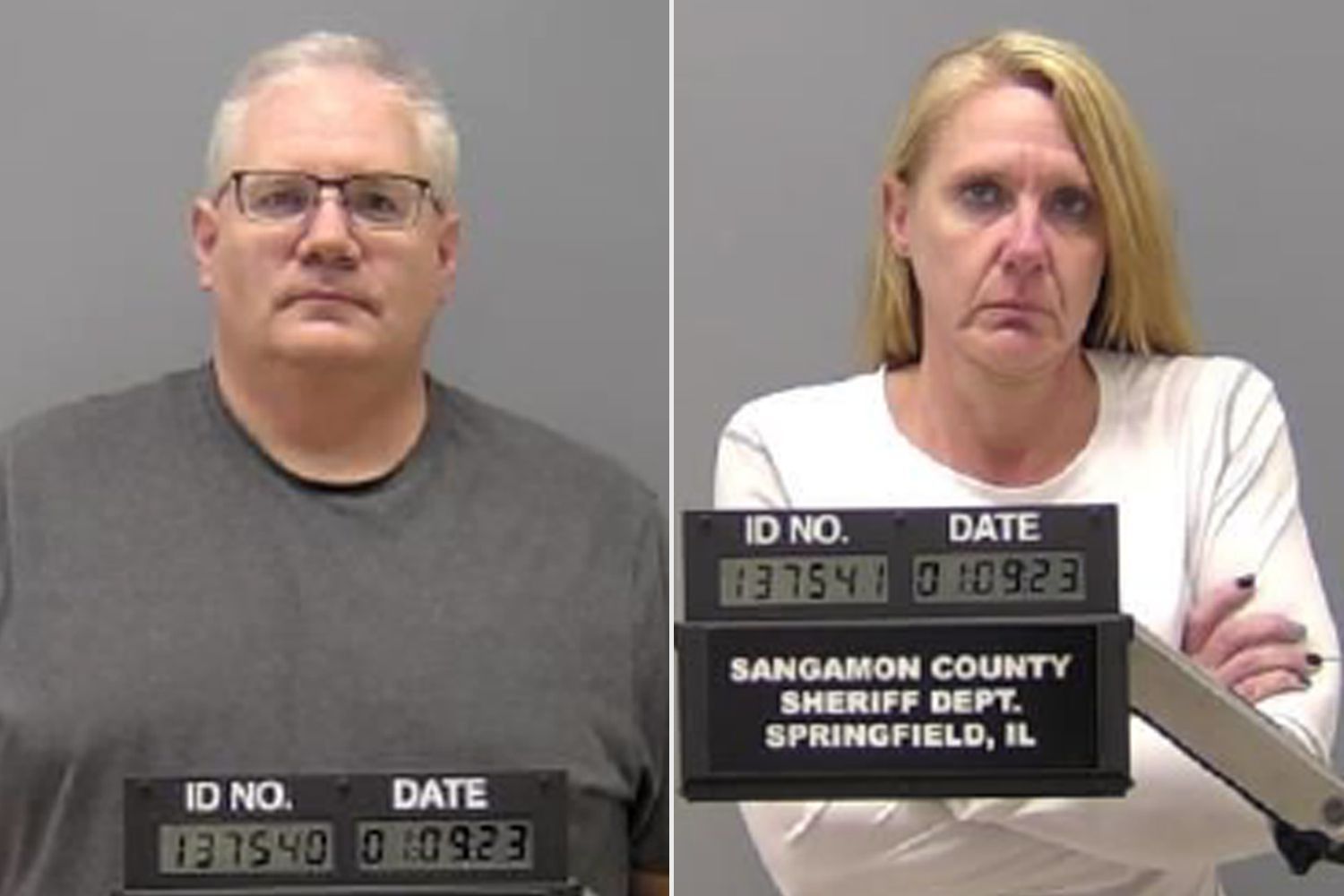Judge OKs trial for Illinois paramedics in patient's death


By JOHN O'CONNOR and KATHLEEN FOODY | Associated Press
SPRINGFIELD, Ill. (AP) — Two Illinois emergency medical professionals should be tried on first-degree murder charges after a patient they strapped facedown to a stretcher suffocated, a judge ruled Friday.
Peggy Finley and Peter Cadigan are charged in the December death of 35-year-old Earl Moore in Springfield. They pleaded not guilty Friday and are being held in the Sangamon County Jail on $1 million bond each.
If convicted, Finley, 44, and Cadigan, 50, could each face 20 to 60 years in prison. Sangamon County Circuit Court Judge Raylene Grischow issued her decision following a contentious 3 1/2-hour preliminary hearing.
Springfield police first responded to Moore’s home around 2 a.m. on Dec. 18. Police body camera video shows that a woman inside the home told an officer that Moore was in withdrawal from alcohol and hallucinating.
Finley and Cadigan were summoned to the apartment. The body camera video shows the officers trying to get Moore to his feet to walk out the door for medical assistance, and then placing him in a prone position on the gurney. Cadigan, an emergency medical technician, strapped him in while Finley, a paramedic, put a blanket over him.
Finley later told hospital officials and an investigator that Moore had been combative.
An autopsy revealed that Moore died of “positional asphyxiation” and that he had two broken ribs, which State’s Attorney Dan Wright attributed during Friday's hearing to Moore's being strapped in so tightly facedown.
“There’s no medical reason to transport someone in a prone position,” Wright said.
Referring to the video, Wright continued: “Clearly, Mr. Moore is not combative. He was the complete opposite of combative. He needed help. For them to cover themselves by telling hospital staff that he was combative goes to their credibility.”
“If this goes to trial, the state is going to have to prove beyond a reasonable doubt that when they placed him on the gurney, that they thought to themselves, ‘I think I’m killing him,’” said Justin Kuehn, one of Cadigan’s attorneys. “Were their acts reckless? That’s for another day.”
As the defendants entered the courtroom, Finley saw seven family members sitting in the front row. She took a seat at the defense table and with tears streaming down her face looked at her family and mouthed, “I’m sorry.”
Family members declined to comment to The Associated Press.
Under Illinois law, a first-degree murder charge applies when a defendant “knows that such acts create a strong probability of death or great bodily harm.” Experts have said it’s rare for emergency medical providers to face criminal charges in a patient’s death.
Friday’s hearing was riddled with objections, mostly from defense attorneys who claimed Wright was creating testimony in questioning the lone witness, Sgt. Zachary Weisahaar, an Illinois State Police investigator.
Finley and Cadigan told Weisahaar that Moore had been combative. Cadigan said he based that conclusion on seeing Moore flailing and a police officer jump out of the way, Weisahaar said.
Bodycam footage showed Moore unable or unwilling to stand on his own and at times thrashing. His blood-alcohol level was .077, which is just under the legal limit for driving in Illinois of .08. After entering the apartment, Finley yelled at Moore to get up.
Weisahaar said Finley told him that she monitored Moore’s vital signs on the way to HSHS St. John’s Hospital. But Wright played for the court a recording of Finley’s call to alert the hospital of their arrival in which she said, “I’m not messing with vitals because I don’t want to poke the bear.”
Both Finley and Cadigan had sufficient training and knowledge to know that Moore’s position was detrimental, Weisahaar testified. He said Cadigan told him that in 20 years, he had never been instructed that putting a patient in the prone position was dangerous.
Weisahaar also said he learned that Cadigan had attended two training sessions just last year in which the instructor insisted that warning against prone positions was emphasized.
Another Cadigan attorney, Edward Unsell, said it’s more likely that the broken ribs Moore suffered resulted from hospital staffers’ attempts to resuscitate him.
Finley’s attorney, W. Scott Hanken, said the charges aren’t warranted.
“There are two venues — civil and criminal. We’re in the wrong venue,” Hanken said. “You’ve not heard one scintilla of evidence that goes to accountability.”
Their next court date is Feb. 6. Their attorneys say they will seek their release on personal recognizance.
Moore's family announced Thursday that they have filed a wrongful death lawsuit against Finley, Cadigan and their employer, LifeStar Ambulance Service.

The Chicago Journal needs your support.
At just $20/year, your subscription not only helps us grow, it helps maintain our commitment to independent publishing.
If you're already a subscriber and you'd like to send a tip to continue to support the Chicago Journal, which we would greatly appreciate, you can do so at the following link:
Send a tip to the Chicago Journal


